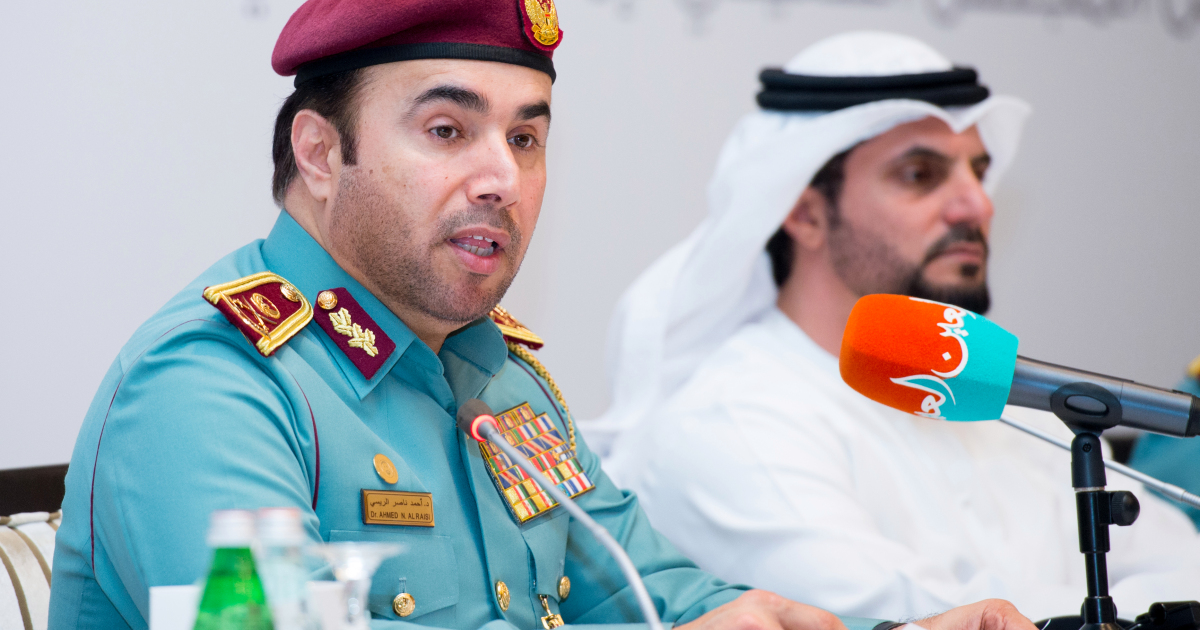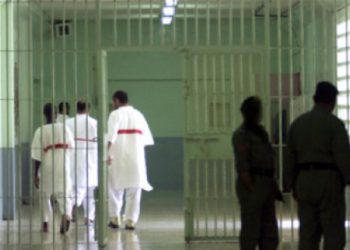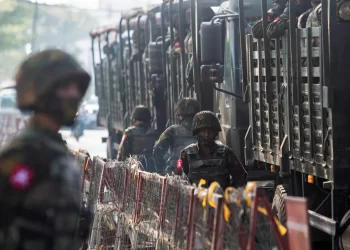A United Arab Emirates (UAE) official’s candidacy for president of Interpol has stirred human rights concerns.
Human Rights Watch and the Gulf Centre for Human Rights (GCHR) warned Wednesday that if elected, Maj. Gen. Ahmed Naser al-Raisi, inspector general at the UAE Interior Ministry since April 2015, will jeopardize the global police organization’s commitment to human rights.
At his current position, al-Raisi is charged with investigating complaints against Emirati police and security forces, both of which hold a long record of multiple rights abuses.
“General al-Raisi’s selection as Interpol president would indicate that Interpol’s member states have no concern whatsoever about the record of the UAE in persecuting peaceful critics,” Khalid Ibrahim, GCHR’s executive director, said in a statement. “His candidacy is yet another bid by the UAE to purchase international respectability and whitewash its deplorable human rights record.”
The elections for Interpol’s president and executive committee were originally set for December 2020 but Covid-19 restrictions postponed them to later this year.
The election process has been criticized as one lacking oversight and transparency because Interpol provides no public information about the candidates. A reliable vetting process is also missing.
Al-Raisi confirmed his candidacy in a November 2020 interview in 999, a magazine published by the UAE Interior Ministry.
“My winning the Interpol presidency will be considered an achievement for all Arabs,” he said then.
Human Rights Watch and GCHR were among over a dozen international rights groups that warned Interpol’s Secretary-General, Jürgen Stock, in October last year about al-Raisi’s potential election.
Al-Raisi reports directly to Deputy Prime Minister Mansour bin Zayed Al Nahyan and Interior Minister Saif bin Zayed Al Nahyan.
He is alao a member of Interpol’s executive committee, which oversees the implementation of general assembly decisions and the work of the General Secretariat.
In 2011, Human Rights Watch and GCHR began collecting evidence on the UAE’s crackdown on the opposition and have so far documented numerous cases of serious abuse, including torture and forced disappearances of critics, by state security forces.
There has been no indication that the UAE authorities have investigated the reports.
A report written by the United Kingdom’s former director of public prosecutions, Sir David Calvert-Smith, found that “the UAE is seeking to improperly influence Interpol through funding and other mechanisms and concludes that the UAE is seeking to cement its influence by seeking to have Major General Al-Raisi elected as President.”
Al-Raisi’s election “would send a message to the world that Interpol has little or no respect for human rights and will turn a blind eye to torture and repression,” Calvert-Smith concluded.
Interpol already stands accused of failure to address abuses by some governments of its “Red Notice” system, an international “wanted persons” list.
Calvert-Smith wrote that he “found strong evidence that the UAE has misused the Red Notice system both for minor offenses and most importantly for political gain against those seen as a threat to the regime.”


















